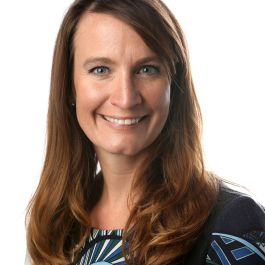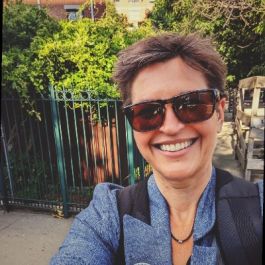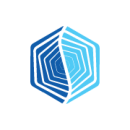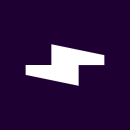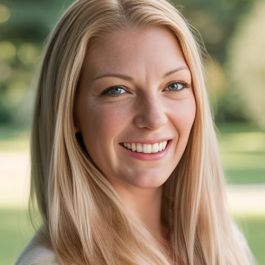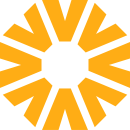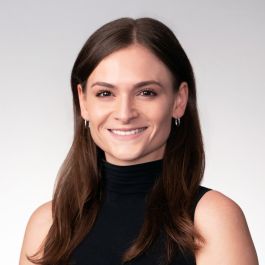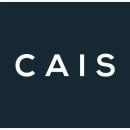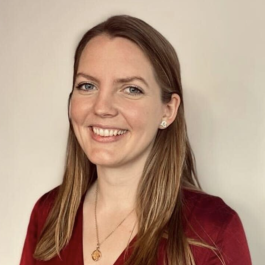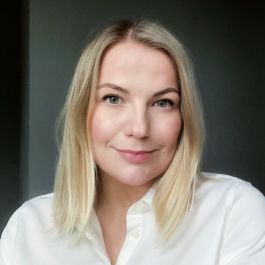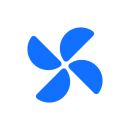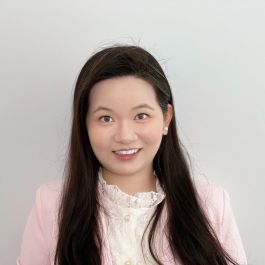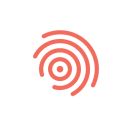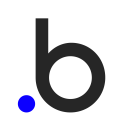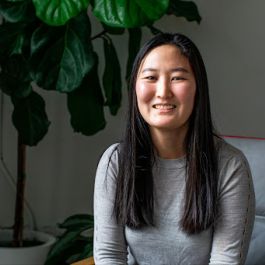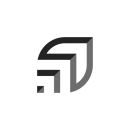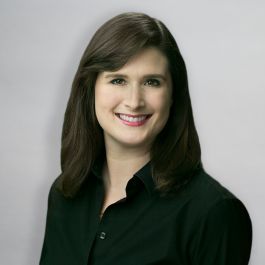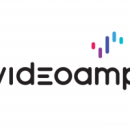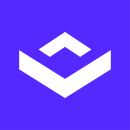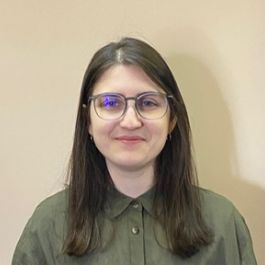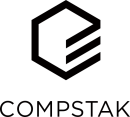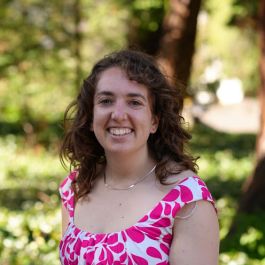A love for track and field led to a passion for data analytics. A passion for tinkering with HAM radios evolved into a thriving tech career. A childhood interest in Rube Golberg machines culminated in becoming an engineering manager.
These are just a few of the stories of women from 19 NYC tech companies, but they capture a universal truth: When charting a path to the tech industry, there are more zigzags than straight lines.
Technology, after all, has become an all-encompassing force; for every niche interest or personal ambition, there is a product, app or service that facilitates, simplifies and advances it. With such diverse applications, the technology realm unsurprisingly attracts an equally wide range of people.
Still, men have historically dominated the tech space. Likewise, the barriers to entry — both structural and cultural, as well as self-imposed due to a broader status quo — continue to deter many women from pursuing tech careers.
Whether one holds a longtime passion for technology or is just beginning to explore the field, the following women demonstrate that there is a place for all in the industry.
Each of their journeys may be unique, but all are rich with knowledge, advice and insights that could propel and inform one’s own trajectory to a fulfilling career in tech.
Headway created a software-enabled network of therapists that now powers over 300,000 appointments per month.
Tell us a bit about your career journey thus far and what you do at your company.
I studied computer science in college and my first full-time job was at a big bank — which I quickly realized was not for me. I wanted something faster-paced where I would have more opportunities to learn, grow and try new things. So, I moved on to a life insurance startup called Haven Life, which gave me everything I wanted at the time.
However, several years later, during the height of the pandemic, I felt a strong need to align my work with something I was more passionate about, and mental healthcare startup Headway fit the bill perfectly. For much of my two-plus years here, I’ve worked on search and ML-based matchmaking in the patient experience, which, as anyone who has tried to find a therapist knows, is an interesting and complex problem to solve. More recently, I moved to the provider side of things with the goal of leveraging search and matchmaking to help providers and patients find the perfect long-term fit and increase referrals to providers.
How did you originally discover your passion for technology? How did you know you wanted to pursue a career in tech?
I’ve always been really interested in solving puzzles. That translated to an early love of video games and board games and asking “why?” a lot. I loved the process of breaking down a complicated problem into logic and systems. However, I also became interested in creative things such as art and writing. I actually intended on majoring in the humanities, but, as luck would have it, I was accidentally placed in the Intro to Computer Science course in my first semester in college.
After the first lecture, where the professor walked us through an eye-opening exercise involving how to make a peanut butter and jelly sandwich, I knew I had found something that spoke to me. I already knew computers were powerful tools, but that exercise was a lightbulb moment when I understood that I could leverage technology to solve all these real-world problems if I could speak the language. I realized that a career where I could apply creativity and insight to solve complex problems using technology was the perfect fit for me.
Try new things — not just in technology. Everything you learn can be applied in interesting, cross-disciplinary ways.”
What advice would you give to other women discovering they are interested in tech and considering pursuing a career?
Try new things — not just in technology. Everything you learn can be applied in interesting, cross-disciplinary ways. In the end, technology is used to solve problems in the real world, and the real world includes more than just computers and the tech industry. By remaining open-minded and constantly trying to learn, you become not only a more well-rounded person but also a more interesting hire. The field also changes quickly since new systems and technologies are constantly being created. By developing an early mindset for learning, you set yourself up for a successful tech career.
Through iCapital’s intuitive digital solutions, financial advisors, wealth managers and asset managers can optimize and diversify clients’ alternative investments.
Tell us a bit about your career journey thus far and what you do at your company.
My career journey began in 2016 after graduating from The College of New Jersey and pursuing a role in the financial industry focused on credit analysis. I quickly pivoted to technology and became a developer. In this role, I learned most of my technical skills and started managing a team. During this time, I also learned how various tools can enhance business processes and create transparency and efficiency across an organization.
In 2021, I joined iCapital as a program manager and had the opportunity to build out and spearhead the Intelligent Automation initiatives, which are pivotal in optimizing processes and expanding efficiency for various business teams. A year later, my role expanded, and I became a contributor to the business process management team to help standardize and streamline processes to mitigate risks and enhance accuracy. Within this team, we leveraged technology to drive automated solutions and create a strong balance between innovation and operational excellence.
How did you originally discover your passion for technology? How did you know you wanted to pursue a career in tech?
During the first two years of my career, I was eager to discover other fields and new interests. At my previous company, my mentor gave me the chance to learn more about the technology space, specifically Intelligent Automation. The concept of visualizing ideas, bringing them to life and seeing the final production built through code and the benefit it provided to business teams inspired me.
The concept of visualizing ideas, bringing them to life and seeing the final production built through code inspired me.”
Through the solutions I created, I felt that I was making a direct impact on the company. This opportunity to explore a new field showed me the transformative power of technology and motivated me to learn as much as I could about how we combine technology and operations to build robust solutions. Working in tech allowed me to combine my problem-solving skills and continual desire to learn. It became clear to me that a career in tech was my passion.
What advice would you give to other women discovering they are interested in tech and considering pursuing a career?
To women who are interested in tech, I offer a few points of advice:
Technology flourishes when inquisitiveness and the desire to overcome obstacles combine, so embrace your curiosity and see challenges as motivation instead of a potential failure.
It’s crucial to establish a strong network and have mentors and sponsors within the tech space. This will provide a supportive community for receiving guidance, inspiration, career navigation and growth opportunities.
Always express your thoughts and opinions even if they differ from others because unique and different viewpoints are vital to a company’s growth.
Always continue to learn and enhance your skills and stay current with the latest market trends. The technology field is evolving rapidly, and new tools and techniques are constantly being discovered.
Be confident in what you bring to the table. Your contributions can help a business navigate the technology world and thrive.
Snap Inc. is a technology and social media company that creates opportunities to connect and communicate with a camera.
Tell us a bit about your career journey thus far and what you do at your company.
I started my career in data science as a senior analyst of consumer research at The Washington Post. When I joined, the news industry was facing a major digital disruption, and data science — before it was called data science — was transforming with the rise of big data.
I spent a decade growing my career there and led our analytics and data engineering strategies, which helped set the company’s path through data science insights. When I left, I wanted to explore other ways to use my skills to solve different problems. This brought me to work on paywalls and multi-product launch spaces at The Wall Street Journal and The New York Times and then to Disney to be part of the small executive team that launched Disney+.
I was drawn to Snap because of the company’s growth, success and opportunity ahead — and my ability to make an impact for those same reasons. As Snap’s VP of data science and analytics, I lead the team that leverages our massive data sets to uncover actionable insights, improve decision-making quality and speed and enable a deeper understanding of our customers and products.
How did you originally discover your passion for technology? How did you know you wanted to pursue a career in tech?
The field of statistics is built upon making sense out of chaos. Finding patterns and relationships in large or small data sets helps explain what is happening or predict what will happen next. I started in the field when this was largely built on survey research and small data sets.
Understanding human decision-making through statistical analysis went through a complete transformation with the change in tech and data capabilities. Watching what would previously take days take only hours solidified my passion for the field and my passion for technology. We can now understand, advise, predict and enable these decisions at a pace and with accuracy in a way that was inconceivable even only a few years ago.
Understanding human decision-making through statistical analysis went through a complete transformation with the change in tech and data capabilities.”
What advice would you give to other women discovering they are interested in tech and considering pursuing a career?
I have never had a female advanced mathematics or statistics professor in my entire academic career. I also, unfortunately, have not had the privilege of working under senior female leaders in tech. But that is all changing, and I am thrilled to see so many intelligent women not just in the field but also leading it today.
While women’s presence in leadership roles helps immensely, it won’t solve issues of bias. My key advice is to rely on and support other women colleagues. Having excellent colleagues who you can trust, run ideas by and solve problems with will help you overcome obstacles and grow your career and theirs. Tech careers are fulfilling — it is rewarding to see your own career develop and your successes grow, and it is even more rewarding to help others do the same along the way.
Schrödinger provides scientists with advanced molecular simulations, enterprise software solutions and services focused on research and development.
Tell us a bit about your career journey thus far and what you do at your company.
Tech wasn’t originally on my career radar. Frankly, navigating my professional path has been quite the puzzle! My entry into the tech realm kicked off in customer service at a cell phone company — remember Sprint PCS? Then, an opportunity bloomed at a local software firm. I absorbed knowledge voraciously. My strategy? Mastering the tasks others shied away from. The journey often meant enduring lengthy, exasperating nights and weekends — all while pursuing my bachelor’s degree through night classes.
That software company and its people held my heart. A shared desire to propel the company forward united us, pushing us through the rapid shifts in the software domain. I eventually bid farewell when I relocated 1800 miles away, opting to be self-employed for a spell. I took on bar and restaurant inventory, merging my hospitality skills with tech savviness. Selling that venture paved the way for a transition to become the lone IT guru at a small grocery enterprise.
From there, I stepped into a larger grocery chain’s IT landscape, subsequently venturing into the realm of hospital IT and ultimately finding my footing in my present role — helming the operations team.
How did you originally discover your passion for technology? How did you know you wanted to pursue a career in tech?
I have always been a tinkerer, from CB radios to HAM radio fests, soldering circuit boards, fixing tape recorders for cash and then my first computer, an Atari 400. This led to BASIC programming, BBS hangouts and witnessing tech’s rise. I never intended to pursue a career in tech. I thought I would end up in photography or biology. Instead, I worked in restaurants, roamed the U.S. and took sporadic community college classes.
In New Mexico, I embraced tech for small businesses, crafting a website for a bar I worked for, updating operating systems and doing general IT work while juggling two jobs. I started building computers out of spare parts, which is where I learned about Linux. I could load an operating system on old computers and sell them. Eventually, I returned to school, opting for an IT degree due to its ease and lucrative prospects. It was pragmatic — a blend of interest and practicality.
Ultimately, what made me realize tech was my passion was getting a position with a software company. The dedication, the camaraderie and the shared sense of purpose all drew me into the field. From there, I moved into management, learning how to blend my life skills into a fulfilling career.
There is no need to rush into mapping your life’s trajectory all at once. Explore your interests, engage, enjoy and envision possibilities.”
What advice would you give to other women discovering they are interested in tech and considering pursuing a career?
Numerous opportunities abound. There is no need to rush into mapping your life’s trajectory all at once. Explore your interests, engage, enjoy and envision possibilities. Experiment at home, crafting scenarios that excite you. If one pursuit disappoints, gracefully transition to what brings you joy. Take risks, heed others’ wisdom, yet embrace your unique approach. Errors are inevitable, but the true skill lies in gleaning wisdom from them. Tech can be an incredibly rewarding career.
Many of these suggestions can be applied to any career. Just don’t let others keep you from going down this path. The challenges are worth the rewards.
Smartly.io is a SaaS digital advertising platform that helps brands reach audiences, engage creatives and learn what performs best across media platforms.
Tell us a bit about your career journey thus far and what you do at your company.
As a senior product manager for the Creative AI Lab at Smartly.io, I use AI to help our clients make more beautiful and efficient ads.
My journey began as co-founder of a startup called Viralspace.ai with Hiro Tien and Apoorva Dornadula. Viralspace built AI-backed creative insights for digital ads. We dissected clients’ past Facebook ads, identifying key elements like objects, colors, video traits and messaging. Our insights empowered advertisers to understand their creative performance drivers and make data-driven iterations. Smartly.io sought a creative insights company to acquire and spoiler — they chose us.
Recently, the creative AI landscape has made leaps and bounds, from image and video understanding to generative AI. This year’s AI breakthroughs have essentially transformed our dreams since Viralspace’s inception into reality within Smartly.io.
As a product manager, I set vision, strategy and execution — collaborating with teams, managing up and down, and closely working with our engineers and designers. As Viralspace co-founder, I handled product design and customer success. I find a lot of joy in creating great experiences for our customers, whether that’s through services or products.
How did you originally discover your passion for technology? How did you know you wanted to pursue a career in tech?
I’ve always been fascinated by how the brain works and originally wanted to study neuroscience. In college, I took a course called Design For Health. In it, I learned that I liked the design more than the health. Design felt like applied psychology: learn about people, build something for them and iterate together.
After that, I pursued every opportunity to get closer to Silicon Valley through a lens of product and product design. I interned for startups and did a fellowship with IDEO, joined and later became VP of marketing for our school’s largest entrepreneurship club and became an entrepreneur in residence at AB-InBev’s VC arm, building a health drink. Going into my senior year of college, I knew I wanted to build something bigger, and I’m lucky to have found my co-founders and Viralspace.
When I work with customers at Smartly.io to test new generative AI prototypes or with my team to scope out new experiments or interfaces, I still feel some of the same thrill I felt in that Design for Health class. It’s amazing to feel the tangible value that we bring to customers, working with brilliant people across disciplines and solving complex problems every day.
It’s amazing to feel the tangible value that we bring to customers, working with brilliant people across disciplines and solving complex problems every day.”
What advice would you give to other women discovering they are interested in tech and considering pursuing a career?
Three things that I would tell my early high school self:
Firstly, learn about roles. If you already have a natural interest in coding, designing, data science, marketing or something else, that’s great. Find courses and mentors to help you build those skills. If you’re still exploring, get familiar with the roles offered within tech companies and see which feels like a fit for you. Try looking up people on LinkedIn whose career paths you admire and ask them for a coffee or informational interview to learn more about their day-to-day work.
Secondly, learn about the world. Building products becomes easier when you understand a space deeply. Try to find a few problem spaces or industries that you’re interested in and immerse yourself. Find publications to read, find fellow nerds to talk about the space with and start to build breadth, and later, depth.
Lastly, try building things. Whether you do this through hacking on projects at home or finding more formal structures like internships, nothing helps you learn faster than actually building. Find hackathons, internships or an online course with sample projects. Technology is all about creating. Have some fun with it.

Valon is a financial wellness platform that leverages technology to improve the homeownership experience.
Tell us a bit about your career journey thus far and what you do at your company.
My journey in tech started many years ago and included stints at the NSA, Google, Elastic and now Valon. I’ve done everything from UI to back-end work, from government stuff and advertising to data analytics, and now on to mortgages.
My passion over the last couple of years has centered around managing extremely large or fast-growing code bases and how to keep up feature development speed and developer efficiency while balancing code quality and stability. Software technology has not really been around for long, yet our entire society depends on it. Especially when dealing with startups, there is a huge opportunity to establish developer practices from the get-go that will reap rewards for years to come and help the company and codebase stay nimble.
How did you originally discover your passion for technology? How did you know you wanted to pursue a career in tech?
I went to college initially for fashion design, but it only took a semester to realize I wanted something more mentally challenging. I did a complete 180 and switched to computer science and mathematics. I had exposure in my younger years, watching my dad build his own software company at home long before working from home was cool. I fondly remember being around 11 or 12 and him helping me build my first couple of computer programs: a Mr. Potato Head app with MS Paint and a maze where the mouse couldn’t touch the walls, although there were some secret walls with treasure behind them.
I fondly remember being around 11 or 12 and my dad helping me build my first couple of computer programs.”
What advice would you give to other women discovering they are interested in tech and considering pursuing a career?
Confidence is crucial, but you can fake it till you make it.
I struggled a lot with imposter syndrome over the years. When I first applied to Google, I stopped filling out the application halfway when it asked me to list publications I authored. I grew up in a very rural area and went to a state school. Who was I to think I stood a chance? I never authored anything! The application somehow got submitted anyway, and I ended up getting hired. Every time I pushed myself outside my comfort zone and took a risk, it ended up helping my career in big ways. Be okay with failure. You will either succeed or learn something.
It also helps to have an opinion — part of why confidence is so important. A company’s success is never due to a single person but many people leaning on and learning from each other. Even if you are unsure of yourself, speak up and get involved in the conversation, and everyone will benefit. If you don’t have any opinions, ask questions.
CAIS is an alternative investment platform that streamlines the end-to-end transaction process and provides a learning system that empowers advisors to improve client outcomes.
Tell us a bit about your career journey thus far and what you do at your company.
I graduated college unsure of what I wanted to do professionally. As a type A personality, this was frustrating, but I’m grateful in retrospect because I learned that taking the road less traveled can pay off in unexpected ways. After starting out as a teacher, I completed continuing education in graphic design and built up my resume by freelancing. I later joined CAIS as a graphic designer with hopes of entering a product design role, and after a few years, that dream became a reality.
As a product designer for a B2B enterprise application, I absorb everything I can about the work lives of our users (financial advisors), the complexities of our space (alternative investing) and the larger industry in which we operate (wealth management). Doing so has proved invaluable when speaking with users and stakeholders. As a result, I’m confident that the technology solutions we ship meet true user needs. Another key aspect of the role is to contribute to our design system, which is used across all our products for consistency and usability. Now also serving as a design leader, my day-to-day includes planning, processes and people.
How did you originally discover your passion for technology? How did you know you wanted to pursue a career in tech?
I can vividly picture when I first saw my dad use the “Tap to Pay” feature on his iPhone. This, to me, was and is a true user experience. It’s not about what is on the screen or even about what is needed to make the payment, but rather what is easiest for the user.
Unlike consumer technology, when it comes to B2B software and highly regulated industries, policy rather than technology often stands in the way of the best UX. I consider banking and healthcare apps to be more like utilities, where the user doesn’t have much of a choice but to use them. Product designers in these fields can deliver so much value by making seemingly simple, day-to-day tasks smoother.
As an example, since enabling digital signatures on transaction documents, rather than users needing to print them out, collect wet signatures and scan them back into the system, we have seen average order completion time drop from weeks to hours in many cases. Now consider this at scale across our entire user base.
My passion for tech stems from wanting to help people. Similarly, if you’ve ever wanted to throw your computer against the wall because of a bad UX, helping design products is a great reason to get into tech.
If you’ve ever wanted to throw your computer against the wall because of a bad UX, helping design products is a great reason to get into tech.”
What advice would you give to other women discovering they are interested in tech and considering pursuing a career?
Don’t force it. Pay attention to what gives you energy and what drains you. There are plenty of non-technical roles within tech. You don’t have to be an engineer to play an integral role in delivering a digital product.
Develop foundational skills versus mastering programs. More likely than not, the software du jour will change alongside even greater changes in technology, like AI. Your ability to solve problems is what makes you a great designer, not the application you use.
Get comfortable with change. There will always be market forces, competitors and larger industry shifts that fundamentally change the problems you are trying to solve. Your role will not stay static.
Continuously talk to others you admire for perspective. Talk to humans. You don’t have to be a LinkedIn influencer to benefit from networking. Start small and try to schedule one 30-minute call a month. Expressing interest may very well make someone’s day, and you’re bound to learn something.
Diversify how you spend your time. Life is not all work; what you do professionally is just a sliver of who you are holistically. Take a step back from your Monday-to-Friday grind and try something new.
Enigma provides small businesses with reliable data to unlock new access to capital.
Tell us a bit about your career journey thus far and what you do at your company.
I studied mathematics at Oxford, specializing in pure mathematics and theoretical problem-solving, which I loved. In my first job as a financial analyst at Willis Re, I saw the power of data analytics as a foundation for business decision-making. I soon came across the world of alternative data and joined Earnest Analytics, a startup selling a consumer transaction data product to retail investors. My role grew from operating as a data analyst to managing a team of analysts before transitioning into product. Learning that the hardest part of my job was not the technical side but the ambiguity and challenges associated with leadership, I decided to pursue an MBA at Harvard.
After graduating, I sought a role that combined building data products with leadership and joined Enigma Technologies as a data product manager. We are building the leading SMB data product with accurate information about the financial health and identity of every small business. This data powers our customers’ sales and marketing outreach, KYB and onboarding workflows, and credit risk and underwriting decisions. I work on the sales and marketing product and our internal entity resolution models.
How did you originally discover your passion for technology? How did you know you wanted to pursue a career in tech?
In many ways, I have not taken a traditional path into tech, but the common thread throughout my career has been working with data and making sense of it. In my early roles, I spent my time on data analysis and explaining data, but I soon realized I did not only want to analyze the information, I wanted to transform it into a product.
The common thread throughout my career has been working with data and making sense of it.”
When I came across the wealth of alternative data being used in equity investing, it felt like seeing the forefront of what was possible with business data at the time. Since then, we have seen an explosion of data across all industries, but tech startups have continued to lead the way in innovation when it comes to how we can leverage it. Now, the real problem is identifying truly valuable data sources, processing and resolving ever-growing volumes of data and understanding how to use this information to power complex products and models. The recent AI boom in tech makes it even clearer how important it is to understand the nuances of working with data and how to avoid the common risks and pitfalls associated with it.
What advice would you give to other women discovering they are interested in tech and considering pursuing a career?
Speak to industry insiders. Whether through warm introductions through your network or cold outreach, focus on people whose career path interests you. This will shape your understanding of the different roles and help you find overlaps with your existing skill set and interests. Read, watch and listen to as much content as you can to learn about what’s possible today and what will soon be possible. Try to uncover the product, technology or problem that makes you most excited about working in tech.
Decide whether you want to work for a large tech firm with a structured career path and rigorous training or a growing startup where you can learn by doing and where your role can rapidly grow and evolve with the company. Do not second guess yourself or worry about whether you have the right experience or qualifications for the role. Assume that you belong.
EliseAI is a machine learning technology company based in New York City. Their mission is to create conversational artificial intelligence for business that transforms industries crucial to sustaining lives, starting with housing and healthcare.
Tell us a bit about your career journey thus far and what you do at your company.
I started my career at a business consulting firm and moved to EliseAI first as a data analyst and now as a product manager. EliseAI is a machine learning technology company that is building a virtual AI leasing agent to accompany renters through their entire housing journey as they look for apartments, move into a new home, renew in that home or search for a new one. As the product manager for our leasing product, I work on conversation features that improve the renter experience, as well as interfaces that help leasing agents work with our AI. Daily, I work closely with engineers and designers to bring new ideas to life. It’s been exciting to continuously break into new housing markets and serve broader demographics of renters.
How did you originally discover your passion for technology? How did you know you wanted to pursue a career in tech?
Our world is constantly evolving with the introduction of new technologies, and I wanted to build a small part of that new world. What really drew me to technology was the speed of iteration and scale of impact. To experiment with different ideas and user experiences very quickly and see what works and what doesn’t is genuinely exhilarating. As someone without a technical background, I’ve been extremely lucky to join a company working on conversational AI in a space that impacts so many people.
What really drew me to technology was the speed of iteration and scale of impact. To quickly see what works and what doesn’t is exhilarating.”
What advice would you give to other women discovering they are interested in tech and considering pursuing a career?
You don’t need to be the loudest in the room but you do need to put yourself out there. Everyone is learning and trying to figure things out, and people are generally open to hearing new perspectives. Your ideas are valuable, so put yourself out there and make yourself heard and you’ll quickly become an irreplaceable part of the team.
Know where you’ll shine. To build a strong and thoughtful team, you need different types of engineers, product managers, designers and client-facing team members. Understanding your strengths will give you the confidence boost you need and an opportunity to shine. Whether you are a detail-oriented person or great at building MVPs, there’s a place for every type of person, and you just need to figure out where you best fit.
Take every opportunity. Any opportunity could lead you down a new path and give you a new perspective. So take chances to learn and discover, and you might stumble into a completely different industry or job description you didn’t think you’d be a fit for before.
Pass on encouragement. We all have moments of uncertainty, and sometimes a smile or a few words of encouragement or advice go a long way.
January provides borrowers with options tailored to their situation and helps creditors make data-driven decisions. The company aims to modernize the collection process and help users achieve financial stability.
Tell us a bit about your career journey thus far and what you do at your company.
My career journey in tech took a non-traditional path. Having studied finance in college, my first role post-graduation was at an investment bank, working on the sales and trading desk for equity derivative products. While it was a great opportunity, I soon realized that my passions lay elsewhere, so I pivoted to attend a coding boot camp.
After boot camp, Goldman Sachs recruited me to their transaction banking division — a new division they were building. I had the privilege of being one of the first engineers to build the client-facing product from scratch. I led the development of the Transaction Banking Client Portal from its infancy in beta to a successful full product launch for several Fortune 500 companies.
Currently, as a full-stack engineer at January, my main objective is to create a great experience for our borrowers. My role recently expanded to leading an engineering team tasked with launching a new business vertical. My responsibilities include architecting and designing the product’s integration with our existing infrastructure and services, as well as translating our overarching product vision into manageable projects for the engineers on my team.
How did you originally discover your passion for technology? How did you know you wanted to pursue a career in tech?
While working in finance, I was recruited to build a new team — alongside my managing director — that structured corporate derivative products. As a side effect, I inherited several operational tasks that required manual entries into a dozen Excel spreadsheets many times a week. Since I was the only analyst on the team, I needed to save time on operational tasks to focus on deal work, so I taught myself how to write programs in Excel VBA to streamline these processes.
As our team expanded and our deal flow grew, I built out more applications for the team, such as tools for pricing products and running weekly P&L reports. Soon, I became obsessed with automating solutions and realized that I loved finding new, creative ways to solve problems. So, I took a leap of faith and left finance.
I became obsessed with automating solutions and realized that I loved finding new, creative ways to solve problems.”
That leap transformed my career. As soon as I started working as an engineer, I knew I made the right decision. My passion is building a product from the ground up and thinking through ways to simplify execution by weighing tradeoffs between different architectural decisions. I get to do all of that at January while also working at a mission-oriented company with amazing culture and values.
What advice would you give to other women discovering they are interested in tech and considering pursuing a career?
Find what excites you. I learned this firsthand while figuring out what I wanted to do with my life. While my parents and friends all gave me advice, none of their suggestions resonated. I discovered this at my boot camp when I became so invested in my projects that I’d stay up late into the night to finish what I was working on. Turns out this is exactly what I was meant to do!
Seek a mentor who inspires you. This may seem like generic advice, but I want to highlight the word inspires. I’ve been in corporate-sponsored mentorship programs that never quite worked because the mentor I was paired with didn’t resonate with my values. At January, my mentor is someone who inspires me on both a career and personal level and has truly shaped my development.
Company culture matters. I’ve worked in male-dominated industries my entire career and can definitively say that culture matters a lot. Find a company that is collaborative, fosters a healthy working environment and celebrates the unique perspective you offer. At January, I’m lucky to work with brilliant and kind people, and I’ve grown so much more in this supportive environment compared to previous companies.
Pinwheel is a payroll connectivity API company used by some of the biggest financial institutions to securely update direct deposits and access income and employment data.
Tell us a bit about your career journey thus far and what you do at your company.
My career journey includes diverse experiences, beginning in project management across various industries, and led me to my current role as a product engineer at Pinwheel. Here, we pioneer an innovative product that democratizes access to a fairer financial system, positively impacting millions. My team works closely with experiments, refining user experiences to create meaningful interactions. This trajectory reflects my commitment to driving positive change through technology and user-centric solutions.
How did you originally discover your passion for technology? How did you know you wanted to pursue a career in tech?
My journey into the tech world started when I wanted to level up my game in building dashboards and tracking metrics for my team. So, I jumped into a data analytics class where I got my hands on tools like SQL and Python. What these tools could do was mind-blowing — turning boring tasks into something exciting. As my interest grew, I decided to take it a step further with a software engineering class.
The real hook for me was the thrill of making computers follow my commands. Going from basic terminal tricks to creating databases and my first website, I felt an instant connection. I love to see progress quickly, which is probably why I am no good at gardening, and that’s what tech offers: rapid results. This is how I found my calling: a career in tech, promising innovation and fast-paced satisfaction.
The real hook for me was the thrill of making computers follow my commands.”
What advice would you give to other women discovering they are interested in tech and considering pursuing a career?
Practice. Embrace this wisdom from one of my all-time favorite authors, Ray Bradbury: “Just write every day of your life. Read intensely. Then, see what happens. Most of my friends who are put on that diet have very pleasant careers.” Similarly, immerse yourself in coding, especially in the early stages. Regular hands-on coding builds a coding habit and showcases your ability to create. Engage in open-source projects, hackathons or volunteer tech work for non-profit organizations.
Learn by reading. Reading others’ code is just as vital as writing your own. Before I had access to fellow engineers’ private repositories, I delved into open-source projects, dissecting code one tiny file at a time. Understanding dependencies and how things fit together boosted my grasp of complex concepts and diverse coding styles.
Remember that excelling as an engineer goes beyond technical skills. It’s vital to advocate for yourself and foster a successful career. Discover resources like “Building a Career in Software” by Daniel Heller. Treat your career as a project; only you can steer it toward positive change. This mindset shift has greatly empowered my journey.

Software company Smartling’s cloud-based translation technology allows its users to create content that reaches audiences worldwide in their respective languages.
Tell us a bit about your career journey thus far and what you do at your company.
My career journey in tech started when I decided to pursue a Ph.D. in electrical engineering at Princeton University. After my doctorate degree, I stayed at Princeton as a postdoctoral researcher before joining Smartling as a data scientist. I am currently working on projects related to AI. Some of these projects include training machine learning and deep learning models for machine translations (MT), MT quality estimations and other natural language processing-related projects. I am also working on prompt engineering, fine-tuning large language models and data analytics.
How did you originally discover your passion for technology? How did you know you wanted to pursue a career in tech?
Ever since I was a kid, I’ve been interested in mathematics. Being good at it certainly helped fuel that interest. I also had an immense curiosity about how things work fundamentally, which led to my pursuit of a physics degree in my undergraduate study. However, as a first-generation college student, I didn’t know what a career in tech, or any white-collar job for that matter, would entail. I was lucky to have an undergraduate advisor at the time who offered me an opportunity to take on research projects in his group and encouraged me to pursue an advanced degree. I chose engineering for my Ph.D. because I wanted to conduct research that solved practical problems in society. I am motivated by solving real-world problems, and this is what a career in tech is all about.
I am motivated by solving real-world problems, and this is what a career in tech is all about.”
What advice would you give to other women discovering they are interested in tech and considering pursuing a career?
Definitely apply for internships in different fields in tech to see what you like the most. Seek mentors in your field for career advice and resources to help advance your technical skills. I still reach out to my network to ask for recommendations on reading materials and research papers to keep myself up-to-date. When you first start out, I recommend finding a cohort of like-minded people with whom you can practice coding exercises and do mock interviews. Lastly, it’s always good to get some hands-on experience through hackathons and real-world projects. This is where you can meet like-minded people and gain some collaboration skills along the way.
Bubble is a visual programming platform used by over 1 million people to create and host full-featured web applications without needing to code.
Tell us a bit about your career journey thus far and what you do at your company.
My background is in microeconomics and applied math. My first career, however, was in sports. In high school, I fell in love with track and field. At 18, I started working for the national governing body of track and field in Russia, trying to grow the sport via better media coverage, fan relationship management, new events and sales strategies.
In 2013, I moved to the United States to learn new approaches to sports media and business. I was lucky to figure out a way to merge my interest in data with my love for sports at Nielsen while working on implementing their sports sponsorship ROI measurement methodology.
Eventually, I got my first exposure to product management while trying to develop new ways to measure content viewership across TV and digital streaming channels. Product management drew me in because I saw how important it was to use behavioral data to identify optimal solutions, and that’s how my product analytics career started. Over the last five years, I have built product analytics organizations at Peloton and Spring Health.
I got my first exposure to product management while trying to develop new ways to measure content viewership across TV and digital streaming channels.”
Currently, I work at the tech startup Bubble as their first data lead. My small but mighty team supports all functions — finance, product, marketing and sales.
How did you originally discover your passion for technology? How did you know you wanted to pursue a career in tech?
In hindsight, my tech experience started in college as I was working through multiple semesters of statistics and econometrics. At the time, I was focused more on research than industry applications, but I already knew I enjoyed finding data patterns and formulating actionable takeaways. As for the tech industry, five to seven years ago, I probably couldn’t even have articulated what exactly “tech” or “tech startup” meant.
I started learning more about it after shifting from an insights role to a product owner role. I started reading through the product management 101 books like Eric Reis’ “The Lean Startup” and Marty Cagan’s “Inspired,” and I grew increasingly interested in modern technology as a means to solve users’ pain points and influence their behavior. The high leverage that data and insights had in the product development process was another draw for me, and it finally unveiled potential practical applications to my academic research skills. The behavioral analytics part of product development still fascinates me more than product technology itself, though.
What advice would you give to other women discovering they are interested in tech and considering pursuing a career?
It is vital to enjoy what you do day in and day out. Before zeroing in on specific tech or companies, explore what type of work energizes you the most. Do you like researching, building, storytelling, refining and optimizing or communicating and influencing? Which of these do you feel that you excel at? Ensuring your career direction aligns with what drives you intrinsically and what you are strong in is much more important than a specific technology.
Technologies like coding languages, AI and SaaS tools change rapidly, but skills like problem-solving, influencing without authority, systems thinking and attention to detail are always important. This is one of the reasons why I am so excited about working at Bubble — our product empowers non-coders to create fully functional web applications. And don’t discount non-tech companies in your job search — most of them these days have tech roles that may be a great place to land and learn!
For folks interested in product analytics, I am starting to teach a course on Uplimit this fall that will be a great fit for those transitioning from a different industry.
Flourish is a financial products platform that helps advisors secure their clients’ financial futures.
Tell us a bit about your career journey thus far and what you do at your company.
In college, I double majored in computer science and business, then started working at Goldman Sachs. I was there for 11 years, first working on how trades flow and then on automated electronic trading development. I got to build cool trading systems and wrote controls to make things compliant. We used older software versions and a proprietary programming language built by the company rather than languages and infrastructure more widely used in the industry.
I came to Flourish in 2018, drawn to the culture, the small company and the opportunity to use a stack more applicable to the rest of the industry. With a widely used language like Java or a tool like Docker, it’s easier to find existing code and patterns. And, if you have questions, there are more engineers to help you figure out how to solve the problem.
It was also a chance to work on an application with a broader client base with more attention to UI and design. The things I worked on at Goldman Sachs were used by traders who just wanted it to work fast. At Flourish, the product is beautiful, more people use it and there’s more thought about how we design the product and the user flow, which feeds into the API.
How did you originally discover your passion for technology? How did you know you wanted to pursue a career in tech?
I was recently reminded of a game I used to play called The Incredible Machine, where you can build Rube Goldberg devices. I didn’t know I wanted to go into tech, but I used to love playing games like that when I was a kid.
My dad was a computer engineer and worked in Silicon Valley and then South Korea. He was adamant about providing access to information. He bought a computer early on, and when I lived in Korea and didn’t have access to a lot of English books, he’d always bring back a suitcase of books when he went on business trips. I used our computer to play games and took one programming class in high school. That was it.
When I was headed to college, my dad encouraged me to give CS a try. It turned out to be really fun. It was hard, but it ended up being a good fit. In college, the focus is on the theory, math and science behind CS. When I started working, I started to see all the things I could build that enabled us to do something that we couldn’t do before. That’s when I started to get excited. It’s satisfying when you finish something and see that it works. You had a goal, and there is a sense of completion. Being able to see the impact is really rewarding.
I started to see all the things I could build that enabled us to do something that we couldn’t do before. That’s when I started to get excited.”
What advice would you give to other women discovering they are interested in tech and considering pursuing a career?
When I was going to college, there were people who had been coding since they were young, which was intimidating. But, as long as you learn quickly, you have a good chance of being successful. Things are constantly changing, and what you learned 10 years ago isn’t as relevant today. You learn theory in school, but understanding how to apply that theory is done on the job. Having a mentor who can support you is important, especially early on. You don’t have to know everything on day one. As long as you can learn as you go and pick it up quickly, you’ll be okay. You’ll be learning your whole career as a software developer.
And there are a lot of different ways to be successful as an engineer. If you’re really into algorithms, you might be successful at optimizing a task and have an impact by substantially reducing costs or enabling fast access to information. If you have an eye for design, you might be successful as a front-end engineer. If you’re really logical, you might be a good back-end engineer. There are different avenues toward success if you find the one that’s right for you.
AdTech company VideoAmp’s mission is to build software and data solutions that empower advertisers to optimize their portfolios while helping publishers monetize and align their audiences.
Tell us a bit about your career journey thus far and what you do at your company.
I’ve worked in online advertising for over 20 years, since before I graduated from college. I specialized in ad research and media analytics fairly quickly, jumping from a media planning degree to search engine marketing to media analytics at an ad agency within a couple of years. I spent almost six years on the agency side before I shifted to the publisher side, building custom ad measurement solutions for the last 13 years.
Now, at VideoAmp, I’m happy to be on the ad research vendor side, leading outcome measurement methodology across both linear TV and digital media. Outcome measurement can mean everything from tracking site visits or mobile app installs to purchases at the grocery store or movie tickets. The goal is to give advertisers the information they need to optimize their ads toward their particular goals. Some advertisers focus on maximizing return on ad spend, while others maximize the volume of in-store visits and leave the rest to the store. My job is to make sure the information we provide advertisers is as accurate and trustworthy as possible so that they can confidently make those decisions.
How did you originally discover your passion for technology? How did you know you wanted to pursue a career in tech?
I was a ‘90s kid. I remember playing Oregon Trail in elementary school. I think I got an email address when I was 11 or 12. I took my first computer science class as a sophomore in high school, and I really loved knowing how it all worked. One of my teenage hobbies was graphic design, making greeting cards on our home computer or making labels for mixtape CDs. I was great at math and science but couldn’t get excited about majoring in engineering or computer science. I stumbled upon advertising during my freshman orientation at the University of Texas, and they offered a specialty in media planning — the math behind all the great design that goes into ads. Little did I know at the time that the entire advertising world was going digital and that computer science knowledge would do me some good, too!
I took my first computer science class as a sophomore in high school, and I really loved knowing how it all worked.”
What advice would you give to other women discovering they are interested in tech and considering pursuing a career?
Some pockets of tech are still male-dominated, but they are becoming less and less frequent to encounter. Don’t let the fact that you are a woman prevent you from investigating tech degrees or careers. If you enjoy it, do it. My advice to everyone early in their careers is to try on different roles in real life. Seek out internships and part-time jobs while you’re in school or during the summer for the role you think you want when you graduate. If you don’t like it, try a different one. And take the big risks first. Do you want to move away from home and see what it’s like to take a job or internship in a major city? Do it first. Once you get established in a full-time job and set up a home, making those big changes becomes a lot harder.
VTS is a commercial real estate technology platform that is a first-party data source in the industry, delivering insights and solutions that guide investment strategy, leasing and marketing automation, property management and tenant experience.
Tell us a bit about your career journey thus far and what you do at your company.
My professional experience includes account management and production coordination, focusing on supporting B2B clients. I have previously worked in both the telecommunication and fashion industries. Currently, I work as a full-stack software engineer. My team and I tackle various technical tasks to assist VTS’s internal teams with revenue operations, generating sales and developing more advanced self-service features using powerful tools.
How did you originally discover your passion for technology? How did you know you wanted to pursue a career in tech?
I have several friends who work in the IT industry, as well as a few relatives. I’ve had the pleasure of listening to their experiences for quite some time. During my maternity leave, I made the decision to explore new career opportunities. I took courses to learn Javascript, CSS and HTML and attempted to create my first basic web page. I found it fascinating that I could instantly see the outcome of my work and generate something useful and meaningful.
I took courses to learn Javascript, CSS and HTML. I found it fascinating that I could instantly see the outcome of my work and generate something useful and meaningful.”
What advice would you give to other women discovering they are interested in tech and considering pursuing a career?
There are numerous ways to start learning new skills today, such as taking courses, attending bootcamps and watching videos. Although it can be intimidating, it is certainly achievable. Don’t be afraid to give it a try.
Meetup makes it easy to find and organize local events, activities and groups for all interests, hobbies and passions.
Tell us a bit about your career journey thus far and what you do at your company.
I joined Meetup in 2013 as an intern on our community support team. It was my first job in tech, and I got to see how websites and apps are made. My interest in being someone who developed in this space only grew until, one day, I announced to as many people as possible that I wanted to be a software engineer. There was no turning back. I was going to do it.
I created my own curriculum and taught myself how to code most nights after work and on the weekends, pairing with mentors at Meetup to review my progress. Eventually, my hard work paid off, and I proved myself as a software engineer, joining the Meetup engineering team as a full-stack engineer.
After several years as an individual contributor, I learned some Swift to assist in developing our iOS app. I found the opportunity to move into management and became an engineering manager for our apps team. Today, I am a senior engineering manager at Meetup, overseeing our cross-platform organizer growth vertical. I am passionate about what I do and particularly enjoy fostering growth in the people I manage. I play a major part in executing impactful features and building effective processes and camaraderie for my teams.
How did you originally discover your passion for technology? How did you know you wanted to pursue a career in tech?
I’ve always been interested in opportunities to flex both sides of my brain: logic and creativity. I didn’t know that was possible in tech. When I was in school, I thought pursuing computer science meant you were destined for an antisocial, cubicle-bound career.
I’ve always been interested in opportunities to flex both sides of my brain: logic and creativity. I didn’t know that was possible in tech.”
When I got to Meetup as an intern on the community support team, my entire job was to moderate pending Meetup groups to see if they were a good fit for our platform. I learned a lot about the diverse interests and identities of people worldwide: knitters in Dubai, expat soccer fans in Atlanta, introverts who love mystery novels in Toronto and so on.
I was most impressed by women in tech groups, where women in STEM could come together to learn to code, share industry best practices and network to advance in their careers. It seemed like a community I wanted to be a part of, and the workplace I was in made it even more appealing. Engineers at Meetup were solving complex problems, using technology to create a comprehensive user experience across the web and apps. This was exactly what I was looking for in a career: the cross-section of science, imagination and psychology. And not a cubicle in sight!
What advice would you give to other women discovering they are interested in tech and considering pursuing a career?
Declare your intentions. If you’re treating your move into tech as a side project, life will inevitably get in the way or you will give up after you’ve spent hours trying to understand why your code isn’t compiling. Tell your trusted family, friends or colleagues that you are learning to code. It helps keep you accountable, and who knows? It may even lead to your first developer gig.
Decide on your focus. Technology is a vast industry. There are so many different roles and areas of expertise you can pursue. Take some time to explore your options, but then pick an area in which to get started based on your goals and interests. For example, are you trying to get a job quickly and are more of a visual person? Web development is a common entry point since there are countless resources available online to learn these skills, and it can help get your foot in the door before moving into something else if you choose. Want to develop more niche and high-demand skills? Try mobile or back-end development.
Find community. It will be ten times easier to accomplish your goals when you have others around you who “get it.” Meetup happens to be really good for this.
CompStak’s platform gathers and centralizes nationwide real estate data to help owners, investors, brokers and other professionals compare properties and make informed decisions.
Tell us a bit about your career journey thus far and what you do at your company.
I am currently a lead quality assurance engineer at CompStak, where I do manual testing, write automated tests and mentor junior QAs.
However, my career journey at CompStak has been an interesting one as I was originally hired as an intern for the data team in 2015, which turned into an analyst position the following year. At that time, CompStak was a much smaller company with rapidly evolving internal tools that fell onto the analysts to test as their primary users.
Testing our tools was always one of my favorite tasks. Finding bugs and new ways to break the applications felt like solving a puzzle. I learned a lot about our systems and the QA process during that time, and a couple of years later, I was given the opportunity to join the QA team officially. I joke that I didn’t find QA; it found me.
Testing our tools was always one of my favorite tasks. Finding bugs and new ways to break the applications felt like solving a puzzle.”
How did you originally discover your passion for technology? How did you know you wanted to pursue a career in tech?
Working at CompStak as an intern gave me exposure to and some interest in technology. At that time, I didn’t yet have an interest in building my career in that direction.
The turning point was in my final semester of college when I had fulfilled all the requirements for my degree and could take an elective in any subject I wanted. The head of the CompStak data team suggested I try an introductory Python course. While it would take another two years for me to formally switch to a career in tech, that Python course was a lot of fun and vital in eliminating many of my doubts and fears about the idea.
What advice would you give to other women discovering they are interested in tech and considering pursuing a career?
I think the best advice I could offer is “Don’t be afraid to speak up.” The tech world is vast, and no one can be expected to know everything, but asking questions and learning from others in the industry will help women navigate the field.
If you’re interested in tech but unsure if it is right for you, try an introductory computer science course and see how it feels.
Particle Health is a user-friendly API platform that simplifies and secures access to healthcare data for digital providers.
Tell us a bit about your career journey thus far and what you do at your company.
I studied statistics and put off the required computer science classes until my last year because I thought they would be too hard. When I finally took my first computer science class, I was immediately hooked. I love the rush when you solve a bug or change one line and all the tests suddenly pass.
With only two CS classes to my name, I didn’t get any software engineering jobs immediately out of college. My first job was as a data analyst. I enjoyed the work but always picked up as many coding projects as I could for two reasons: I wanted to angle my career towards software engineering in the long term, and I didn’t want to wait for the data engineers to supply the data I needed when I could just do it myself.
The next job I got was as a data engineer, and I worked my way from there into other kinds of software engineering. Even years after I fixed my first bug, I still feel that rush when things click into place and I solve a bug or get a suspicious piece of code running.
At my current company, I work as a software engineer on the back-end team and spend part of my time coordinating our security efforts. It’s a fun, new challenge almost every day.
How did you originally discover your passion for technology? How did you know you wanted to pursue a career in tech?
In high school, I really enjoyed the statistics section in math class and decided I wanted to do more of it. I also read “Freakonomics” and loved how they used data to answer big societal questions, so I decided I also wanted to do data science. This was also in 2012 when data science was at peak hotness.
Once I got to college, in addition to basic statistics courses, I took a bunch of cool classes in things like epidemiology and spatial data science and got pretty good at writing R. I also took a summer research position wrangling data to answer questions about dynamics and trends in the market for donated organs. And finally, just when I was fully convinced that I wanted to be a data scientist, I took some computer science courses, learned how to actually write a function and got hooked on the rush of getting my code to run. These classes opened my eyes to the possibility of software engineering and other kinds of work in tech other than data science.
I took some computer science courses, learned how to actually write a function and got hooked on the rush of getting my code to run.”
What advice would you give to other women discovering they are interested in tech and considering pursuing a career?
Don’t be intimidated if you think you’re not naturally good at math and science. The skills are not necessarily the same across different STEM fields; computer science came way more easily to me than math ever did.
Don’t worry about the people who have been coding since they were kids — you will catch up.
Get good at Googling and don’t be afraid of asking for help, even if you think you’re asking basic questions. Everyone has basic questions at some point, and a lot of other people are probably wondering the same thing you are.
Soft skills go a long way. Being friendly to people, staying aware of what’s going on in your company and industry, and reading and writing documentation have all been critical to my career.
Finally, don’t be afraid to ask for more challenges or different work.








